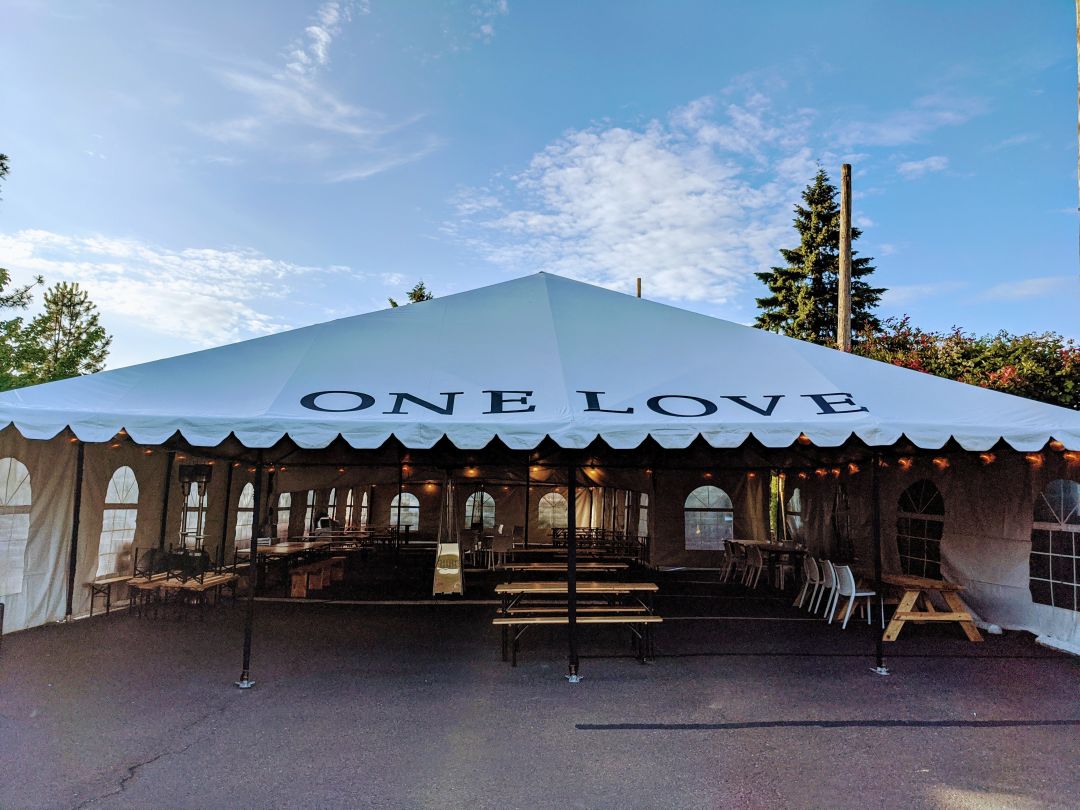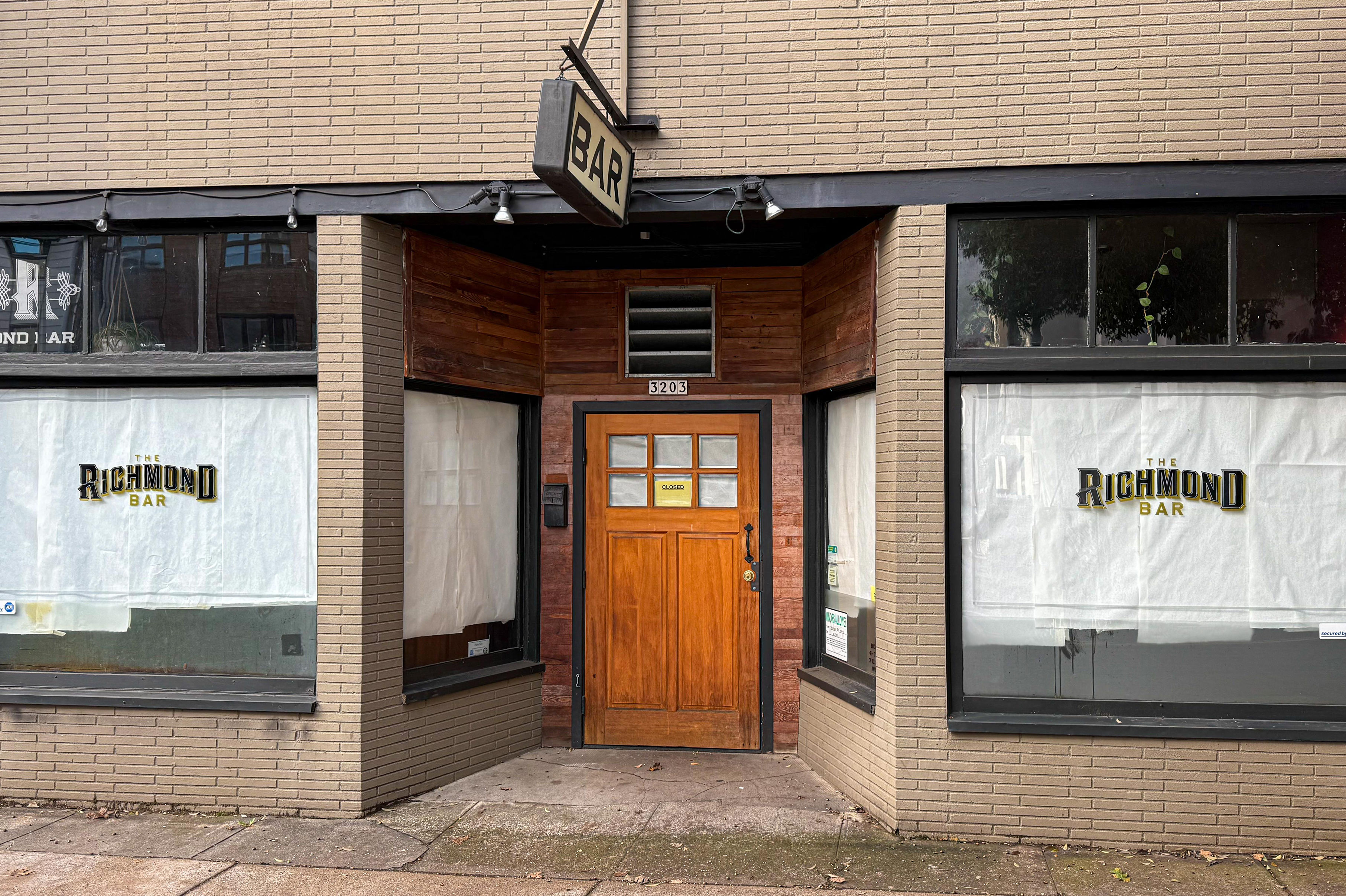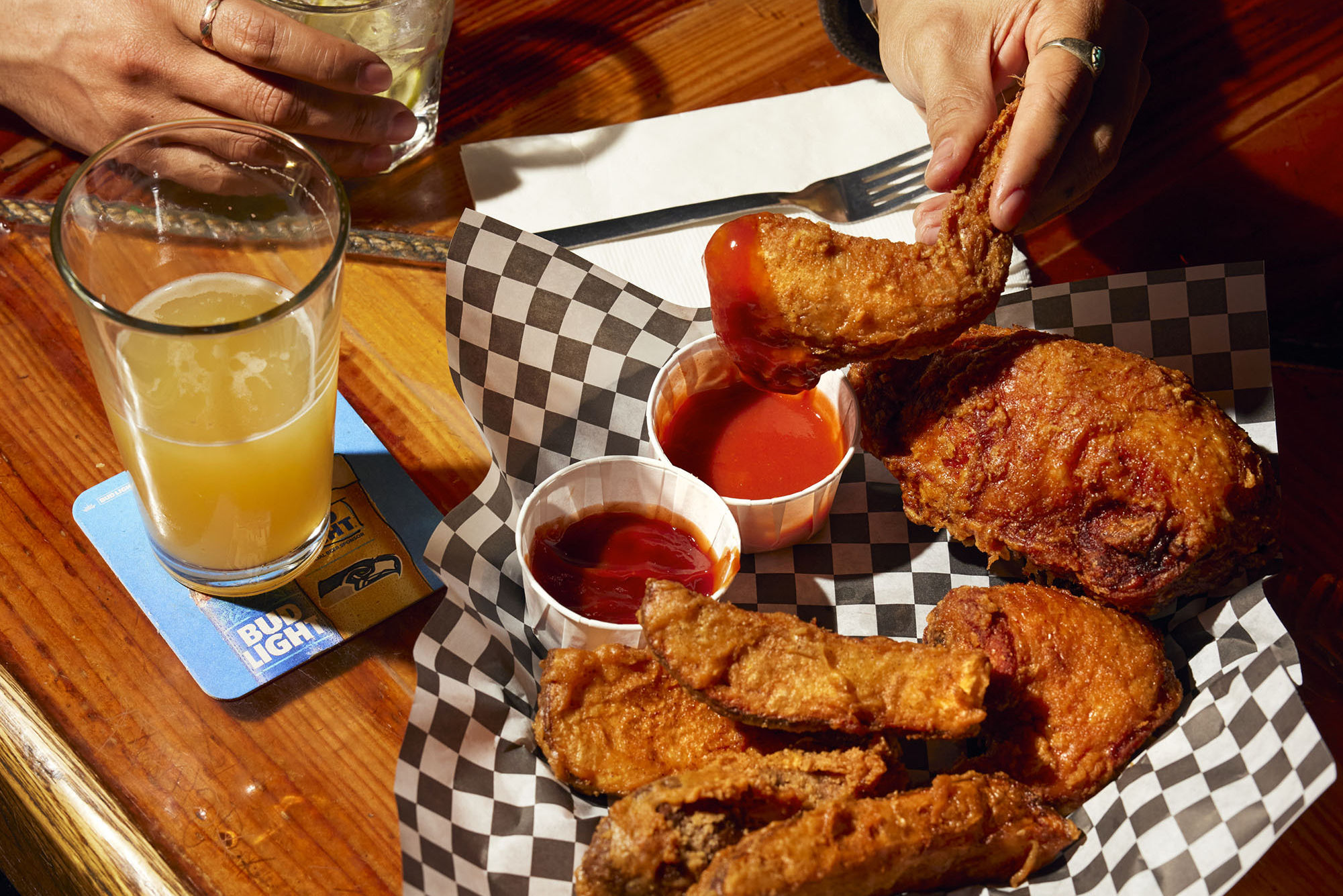Smoky Skies Halt Outdoor Dining In Portland—But For How Long?

Amalfi's patio typically hosts live music three nights a week, but hazardous air quality put a temporary halt to that.
After six months of pandemic life, most restaurants and food carts have their safety protocols in place. There's hand sanitizer up front, online ordering, plexiglass shields, and socially distanced outdoor or indoor tables. But now, due to the hazardous air quality caused by wildfire smoke all over Oregon, restaurant and food cart owners and workers are faced with a series of difficult choices all over again.
“There’s no one there to tell you what’s the right thing to do,” says Francesca Cucolo, owner of the Kind Coffee cart. “We don’t have a ton of guidance from any bureaucratic agency. We don’t have any guidance from the health department or the state. We’re kind of just sailing blind, essentially.”
Cucolo decided to close early last Thursday after spending the morning working in smoky conditions. The cart remained closed over the weekend while Cucolo searched for N95 or KN95 masks for her and her employees to wear at work, eventually finding some on Craigslist. On Tuesday and Wednesday, the coffee cart reopened briefly while Cucolo made breakfast sandwiches and bagels to donate to wildfire evacuees and food-insecure people using inventory that would otherwise go to waste. But not many customers ventured to Kind Coffee in the hazardous air quality; Cucolo says business is only 30 percent of what it was before the smoke rolled in.
Restaurants with outdoor patios have been a popular respite during the pandemic. When it hit, owner Kiauna Floyd of Amalfi’s Restaurant & Mercato closed the indoor dining room and converted the restaurant’s parking lot into an outdoor patio that hosted live music three nights a week, giving guests a taste of pre-COVID life.
“They come in, they see all the safety precautions and protocols are being taken care of, and then on the back end, they’re able to sit down, listen to live music, let their hair down, and have that feeling of normalcy,” says Floyd.
Floyd decided to shut down the restaurant’s outdoor patio last Thursday while remaining open for takeout and grab-and-go. With the patio closed, Floyd estimates she lost 80 percent of her usual business. Moving things indoors was out of the question. Given current Phase 1 guidelines and Amalfi’s layout, the indoor dining room could only be filled to 25 percent of its usual capacity.
“You double, triple your staff for only 25 percent capacity, it doesn’t make sense. We’d be losing money to bring it indoors,” says Floyd.
Restaurant employees aren’t faring any better. Zan Teague, a waiter and bartender at Nicoletta’s Table and Marketplace, says he’s experienced a massive reduction in shifts since the restaurant was closed for several days due to the smoke.
“I don’t receive any pay when I’m not at work,” Teague says. “I lose the shifts for those days. The nights were already uncertain with COVID, and now the smoke is just adding insult to injury.”
Frog & Snail, a popular crepe restaurant off Hawthorne, hosted over 20 indoor and outdoor tables prior to the pandemic. Now, the restaurant is working with a fraction of that.
“We obviously haven't been able to seat anyone back there [on the patio] for the past week, so we're down to a total of three [indoor] tables currently,” says the owner, Chad Bernard. “Working in a restaurant has felt hazardous since March, and this dangerous air quality has only made things worse.”
With fewer customers dining at the restaurant and coming to pick up takeout orders, the restaurant has increasingly relied on delivery services, which charge restaurants a 10 percent fee. But Bernard is looking on the bright side.
“I'm extremely grateful that the dining public has, for the most part, been extremely supportive during this time—especially now when it feels like being kicked while you’re already down,” he says. “I’m also incredibly grateful that my biggest worry is a decrease in sales, and not my house burning down. It could always be worse, but hopefully it gets better, for everyone, in the near future.”




